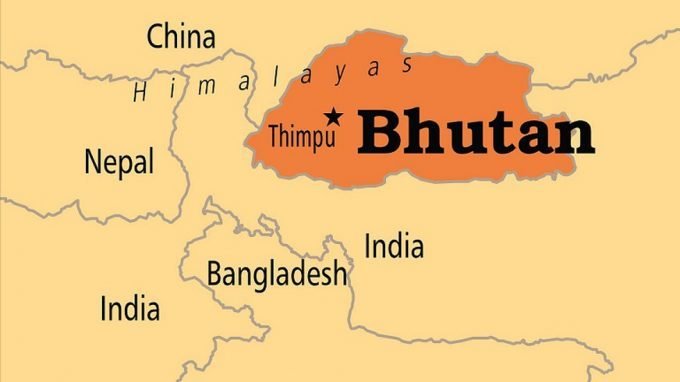97th Constitutional Amendment UPSC | Explained | Why In The News ?
Recently, The Supreme Court majority verdict upheld the validity of the 97th constitutional amendment but struck down a part inserted by it which relates to the Constitution and working of cooperative societies.
About Ruling :
- The ruling came from a bench of Justices R F Nariman, K M Joseph and B R Gavai which upheld a 2013 Gujarat High Court verdict that struck down parts of the amendment.
The 97th constitutional amendment:
- It dealt with issues related to effective management of co-operative societies in the country.
- It was passed by Parliament in December 2011 and had come into effect from February 15, 2012.
- It amended Article 19(1)(c) to give protection to the cooperatives and inserted Article 43 B and Part IX B, relating to them.
Reason For Striking Down :
- The Amendment introduced clauses dealing with the working of cooperative societies working within a state.
- It was struck down stating that the subject matter fell in the state list and “belongs wholly and exclusively to the State legislatures to legislate upon” and any change would require the ratification by at least one-half of the state legislatures as per Article 368(2) of the Constitution.
- It is declared that Part IXB of the Constitution of India is operative only in so far as it concerns multi-State co-operative societies both within the various States and in the Union territories of India
- The top court had said if the Centre wanted to achieve uniformity (the reason for Amendment, as quoted by Centre) then the only way available was to take the recourse under Article 252 of the Constitution which deals with the power of Parliament to legislate for two or more states by consent.
- Certain provisions of the amendment pertaining to cooperative societies violated the basic structure of federalism.
97th Constitutional Amendment: Cooperative Societies :
- The Constitution (97th Amendment) Act, 2011 relates to the cooperative societies working in India.
- It aims to overcome all the problems faced by these societies and bring about an efficient way to manage them.
The 97th Constitution Amendment Act, 2011 provided for amendment of following things:
- It amended Article 19(I) c by inserting, after the words ‘or unions’ the words ‘or Co-operative Societies’.
- It also inserted Article 43B in Part IV of the Constitution as “The State Shall endeavor to promote Voluntary formation, autonomous functioning, democratic Control and professional management of the Co-operative societies.
- After Part IX-A of the Constitution, Part IX-B was inserted. Part IX-B extended from Article 243 ZH to Article 243 ZT.
The Major features of the Act are as follows:
- Incorporation, regulation and winding up of cooperative Societies based on the principles of Voluntary formation, democratic member Control, member economic participation and autonomous functioning;
- Maximum number of directors of a Co-operatives Society to be not exceeding twenty-one members;
- A fixed term of five years from the date of election in respect of the elected members of the board and its office bearers; and an authority or body for the Conduct of elections to a Cooperative Society
- A maximum time limit of Six months during which board of directors of a Co-operative Society Could be kept under Supersession or suspension
- Independent professional audit
- Right of information to the members of the Co-operative Societies;
- Empowering the State Governments to obtain periodic reports of activities and accounts of Co-operatives Societies;
- Reservation of one seat for the Scheduled Castes or the Scheduled Tribes and two Seats for women on the board of every Cooperative Society, which have individuals as members from Such Categories
- Penalties in respect of offences relating to Co-Operatives Societies.
Cooperative Societies :
- A co-operative society is a voluntary association of individuals having common needs who join hands for the achievement of common economic interest.
- Its aim is to serve the interest of the poorer sections of society through the principle of self-help and mutual help.
Part IX B of the Constitution, inter alia, seeks to empower the Parliament in respect of multi-State co-operative societies and the State Legislatures in case of other co-operative societies to make appropriate law, laying down the following matters, namely:-
- Provisions for incorporation, regulation arid winding up of co-operative societies based on the principles of democratic member-control, member-economic participation and autonomous functioning;
- Specifying the maximum number of directors of a cooperative society to be not exceeding twenty-one members;
- Providing for a fixed term of five years from the date of election in respect of the elected members of the board and its office bearers;
- Providing for a maximum time limit of six months during which a board of directors of co-operative society could be kept under supersession or suspension;
- Providing for independent professional audit;
- Providing for right of information to the members of the co-operative societies;
- Empowering the State Governments to obtain periodic reports of activities and accounts of cooperative societies;
- Providing for the reservation of one seat for the Scheduled Castes or the Scheduled Tribes and two seats for women on the board of every co-operative society, which have individuals as members from such categories;
- Providing for offences relating to co-operative societies and penalties in respect of such offences.
Latest Developments with regard to Cooperatives :
- The government announced the formation of a separate Union Ministry of Cooperation
- It will provide a separate administrative legal and policy framework for strengthening the cooperative movement in the country.
- It will help deepen Co-operatives as a true people based movement reaching upto the grassroots.
- In our country, a Co-operative based economic development model is very relevant where each member works with a spirit of responsibility.
- The Ministry will work to streamline processes for ‘Ease of doing business’ for co-operatives and enable development of Multi-State Co-operatives (MSCS).
Source : Indian Express








